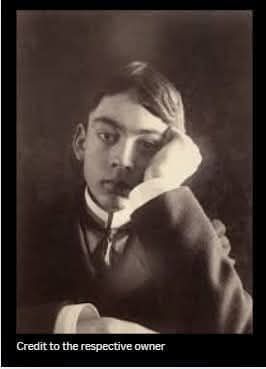In 1895, a 12-year-old boy stepped off a ship in Boston wearing worn shoes and speaking little English. He had come from the mountains of Lebanon with his mother, two sisters, and a half-brother—chasing hope, not certainty. They were poor, grieving, and unfamiliar with this new world. In classrooms, he was mocked for his accent, dismissed as slow, and even called “filthy” because of his olive skin.
But his teachers saw something different. He wasn’t loud, but he was observant. He expressed himself not through fluent words, but through vivid sketches and quiet wisdom. He soon mastered English—and with it, began to shape a voice the world would one day recognize.
His name was Kahlil Gibran.
Within just a few years, Gibran lost his half-brother, his beloved sister, and his mother—one by one, to illness. His remaining sister worked in a dress shop to support them both, allowing Gibran to continue his education. He never forgot that sacrifice. He would later say, “The most beautiful word on the lips of mankind is the word ‘Mother.’” And when he spoke of love, it came not from romance alone—but from sorrow, gratitude, and hard-won clarity.
In 1923, Gibran published The Prophet, a collection of poetic essays on love, freedom, joy, and sorrow. It would become a global phenomenon, translated into over 100 languages, read at weddings and funerals, and treasured by world leaders, rock stars, and quiet souls alike. Elvis Presley, John Lennon, JFK, and millions of others have found themselves in his pages.
He never shouted. He wrote.
“Out of suffering have emerged the strongest souls,” he wrote. “The most massive characters are seared with scars.”
And from that scarred soul came beauty that still touches hearts a century later. Not bad for a boy they once called unwanted.
